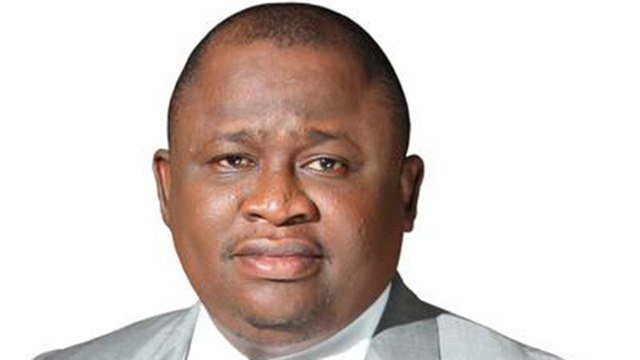
SIR: Youth is a phase of life between childhood and full adulthood. According to the National Youth Development Policy for Nigeria, a youth is defined as any person from the age of 18 to 35 years. Youth are therefore, generally regarded as the cornerstone of any society because they constitutes the bulk of the most vibrant, most energetic and most productive sector of the population. They are also regarded as the storehouse for a nation’s continuity, development and growth. As future leaders, Nigerian youths are therefore, looked unto for quality leadership and unalloyed patriotism to their fatherland. At this juncture, it is very pertinent to ask “how well has Nigeria developed her citizens, especially the youths, for them to live up to expectations?”
There is therefore, no gain saying the fact that for the Nigerian youth to live up to expectations, parents, society and government at all levels must be more responsive and sensitive to discharge their roles and responsibilities in the arduous task of building the youth for the overall development of the nation. Without doubt, no nation can grow socially, economically, politically or even technologically without (first) developing its latent human endowments, through which other resources needed for its general development and growth can be effectively harnessed, developed and utilised.
The present-day Nigerian youths, majority of whom little has been given (in terms of welfare/social security), and from whom much is expected, would definitely have very little or nothing to offer back to Nigeria. Thus, justifying the extent of their neglect, frustration and pathetic mood. It is only by collective action and genuine national orientation and re-orientation that the sordid and ugly situation, in which the youths find themselves today, can be positively transformed in order to save Nigeria from impending total degeneration and collapse.
However, the future of any nation is mirrored by the behaviour and inclinations of its youth. On the other hand, the behaviour and inclination of the citizens are also determined by the socialisation process which they internalise. It therefore, follows that a nation that is determined to survive and grow, must concern itself with the genuine socialisation and pragmatic development of its citizenry, most especially the youths in their early years of life. Otherwise, a negligent nation will certainly become morally bankrupt and will sooner or later pay heavily for such over-indulgence, from increase in immoral and various criminal behaviours, most especially by the younger generation.
Against this background, it is therefore, very pertinent to re-emphasise the fact that the stability and prospect of Nigeria depend largely on the quality of moral, educational, technological, social, cultural, as well as religious values imbibed by the citizenry and the overall development, attained particularly by the youth populace, in view of their vulnerability.
An average Nigerian youth is today, faced with fear and hopelessness, unemployment and hunger, frustration and illusion, as well as various health problems, triggered by illicit drugs. At no other time in the history of Nigeria are the youths found in greater difficulties and challenges than now, most especially in the face of Nigeria’s dwindling economic fortunes, falling moral values, crumbling social securities (such as qualitative education and good/ living conditions, gainful employment, provision of relevant and meaningful developmental policies, among others). The family institution is not left out in this devasting situation, which is full of uncertainties and shocks.
It is estimated that over 25 million Nigerian youths, under the age of 30 years are job seekers. Statistics also indicates that youths account for over 60 per cent of all unemployed persons in the country. Moreso, about 70 per cent of unemployed persons are below 40 years of age. In addition, less than 10 per cent of youths that are turned out yearly, from higher institutions into the labour market are absorbed, given Nigeria’s low-capacity utilisation.
Nigerian youths need to be guaranteed a promising, secured and brighter future through effective, functional and abundant provision of basic necessities and amenities of life that would serve as pivot for their genuine growth and development, and to engender the rapid growth of Nigeria, having all the necessary human and material resources needed to be tapped to make her to remain a proud giant of Africa. The Nigerian youths, therefore, expect so much from governments (Federal, states and local governments), in order to transform them from their present plights, which is occasioned by high level of corruption by public office-holders, who are charged with the responsibility of managing both fiscal and material resources that are being allocated to key sectors of our national life.
The unending massive corruption/diversion of developmental allocations across the three tiers of government by public office-holders has already crippled Nigeria’s development and hindered the socio-economic well-being of the citizenry. Thus, making Nigeria a sleeping giant and majority of her youth populace have been rendered frustrated, depressed and derailed.
• Ganiyu Abdullahi is a concerned patriot and activist.






